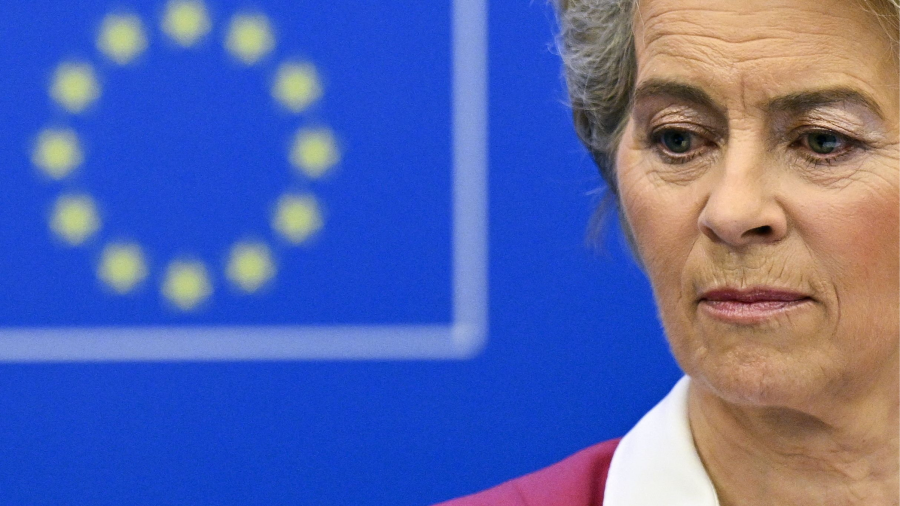
The European Commission has unveiled a fresh package of emergency measures to curb energy prices, warning of more “exceptional” support to come as the bloc prepares for a “precarious” supply situation next year.
The measures contain a controversial cap on the price of gas traded on the EU’s main exchange for the fuel, alongside measures aimed at limiting volatility in energy derivatives markets. The commission also wants to create a clearer structure to co-ordinate EU-wide gas buying and a template for so-called “solidarity agreements”, which allow EU countries to source gas from neighbours should their own supply be cut off.
Commission president Ursula von der Leyen told journalists in Strasbourg that “exceptional and temporary measures” were still needed to ensure security of gas supplies next year.
The bloc could now take “further steps towards an energy union”, she added.
Gas prices surged earlier this year after Russia limited flows to Europe in retaliation for sanctions imposed by the EU following its invasion of Ukraine. Prices have fallen in recent months and are now at levels similar to those seen in the early days of the conflict in late February.
EU countries have managed to fill gas storage facilities to 92 per cent of capacity. But the commission is concerned that, should Russian flows be fully cut off and if storage levels are low by spring next year, member states would face “a precarious situation” the following winter.
Paolo Gentiloni, EU economy commissioner, warned on Tuesday that the bloc was still facing “multiple crises” and that the latest energy measures “would not be the last”.
Russia was previously the EU’s biggest supplier, piping 155bn cubic metres, — 40 per cent of the fuel used by the bloc — in 2021.
The latest measures are up for discussion at a summit of leaders from all 27 EU member states on Thursday and Friday, before being debated in more detail by energy ministers next Tuesday. They are unlikely to be officially signed off until November, however.
The establishment of an emergency price cap mechanism to limit surges in prices on the Dutch Title Transfer Facility (TTF), the EU’s main gas price benchmark, follows weeks of pressure on the bloc’s executive arm from member states that fear widespread social unrest this winter if energy bills do not come down.
Several countries believe the proposal does not go far enough to cushion the impact of high energy bills on households. Teresa Ribera, Spain’s energy minister, said the plans “still leave a feeling that we are not acting with the speed and intensity that is required”.
Spain and France are among nations pushing for an EU-wide cap on the price of gas used in electricity production, a model already employed in Spain and Portugal.
The TTF is traditionally dominated by pipeline gas transactions, the vast majority of which previously came from Russia and have since been replaced by liquefied natural gas.
Germany has frequently opposed any price ceiling, fearing it could increase consumption when the EU needed to preserve supplies.
Pascal Canfin, a French liberal who chairs the European parliament’s environment committee, said a lack of agreement between France and Germany about how to address the crisis meant “the impact of the measures will be limited”.
The commission said use of the TTF as a basis for the gas price cap was intended as a stop-gap measure while it worked on a new benchmark based on the price of LNG imports. It was still considering whether to roll out the so-called “Iberian mechanism” to the rest of the EU if “some open questions can be satisfactorily addressed”.
A senior EU official said the cap would be activated in times of “excessive” prices, but added that the trigger point had not yet been decided.
Following attacks on the Nord Stream pipelines earlier this month, Brussels also set out plans to beef up protection of critical infrastructure, including more stress testing and the establishment of an EU-Nato task force.
The measures are the fourth emergency energy package since May, when the commission outlined ways to wean the EU off Russian fossil fuels. In June, targets to cut gas demand were unveiled. In September, member states agreed windfall taxes on energy producers to ease the impact of higher prices on households and businesses.
Additional reporting by Barney Jopson in Madrid